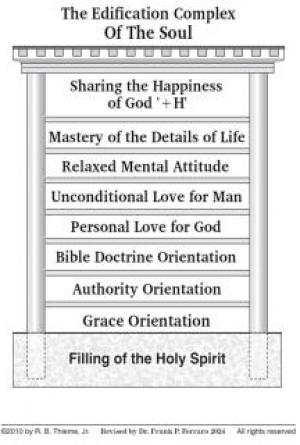SOME PRACTICAL PRINCIPLES
Please forgive my attempt at poetic expression. There is a great peace in silence. Speak comfortably with others without compromising your principles. According to Abba Isaac, we are to be a friend as wel as a stranger to everyone. Express your opinion without imposing it. Listen to the others even when they sound boring and foolish. They too have their pain, their story to tel , and Christ has shed His precious blood for them as wel . Abba Isaiah warns us not to compare ourselves with others; it is a dangerous game. If you say you are better than another, you fal into pride. If you say you are worse, you fal into fatalism, inferiority, despair.
Be vital y concerned with progress in your studies and your work, but also be aware that everyone – a cobbler, a street cleaner – can be a hero and a saint. See to it that you are who you actual y are. Do not pretend to be good for it is a burdensome il ness that leads to death. At the same time do not fal into cynicism where love is concerned. Do not hurry and do not delay. Be as gentle and polite with yourself as you are austere and demanding. Do not idle away your time and do not tire yourself with programmatic endeavors that cannot be sustained. Weariness and loneliness can quickly destroy health. Be reconciled with God. Be reconciled with yourself. Be reconciled with others in your life, and no one wil ever be able to take away the peace from your heart. St. Seraphim of Sarov declared: “Find peace in your heart and thousands wil be saved around you.” One seen as offering little to society can, with this peace alone, acquire endurance and show signs of transfiguration, capable of transforming much evil and ugliness in the world. Certain elderly monks on Mt. Athos teach us by their very appearance. Their serenity, calmness and peace are a thundering sermon – particularly to the young visitors on Mt. Athos who, by the grace from God, can discern the authentic, the wholesome, the pure.
You may be good but you can become better. You may be few but do not fear. A single person can keep and protect the truth, as we know from Church history. The power of the spirit does not depend on numbers.It is truly sad to see many young people today disoriented, unfocused, inconsistent. Yet they have the potential to accomplish a great deal. It is a shameful pity to see them overwhelmed by a spirit of laziness and indifference, with an attitude that says “Never mind!” I don't care about anything!” To have one opinion about everything, to know only the half of many things, to say to al yes or no to everything – these are signs of confusion, indecisiveness and spiritual bankruptcy.
When you become tired of al these, when you begin to be preoccupied with the One - with God, with yourself, with others – then it becomes possible for something significant to begin.
In closing, I would like to offer thoughts of two holy Fathers on the subject we have been discussing.
St. John Chrysostom advises that it is not good to be too bold or too despairing. To be rashly daring makes us fal . To be overly despairing when fal en does not al ow us to get up.
Abba Dorotheos often speaks about the gift of balance and measure, of peace and of humility. He advises us to be constantly seek peace. With peace in our hearts, he tel s us, we can help others. And, he continues, we should always strive to maintain a state of calmness and peace, so that our hearts are neither blurred nor confused.
Let us keep the shutter of the window, which we opened together, always open. The world is, unfortunately, no longer an adornment, but fal en and confused. Nevertheless, we can break the crust of this fal en world and help it breath more freely. It is possible to transform its loneliness through self-knowledge, remembrance of God and His creation, and may the world be a garden where this becomes reality.
These, then, are a few thoughts, offered with love, as a bouquet of flowers from Mt. Athos, the Garden of the blessed Theotokos.
ATHONITE FLOWERS: SEVEN CONTEMPORARY ESSAYS ON THE SPIRITUAL LIFE
Monk Moses of Mount Athos; Translated & Edited by Fr. Peter Chamberas
HOLY CROSS ORTHODOX PRESS, Brookline Massachusetts, 2000







